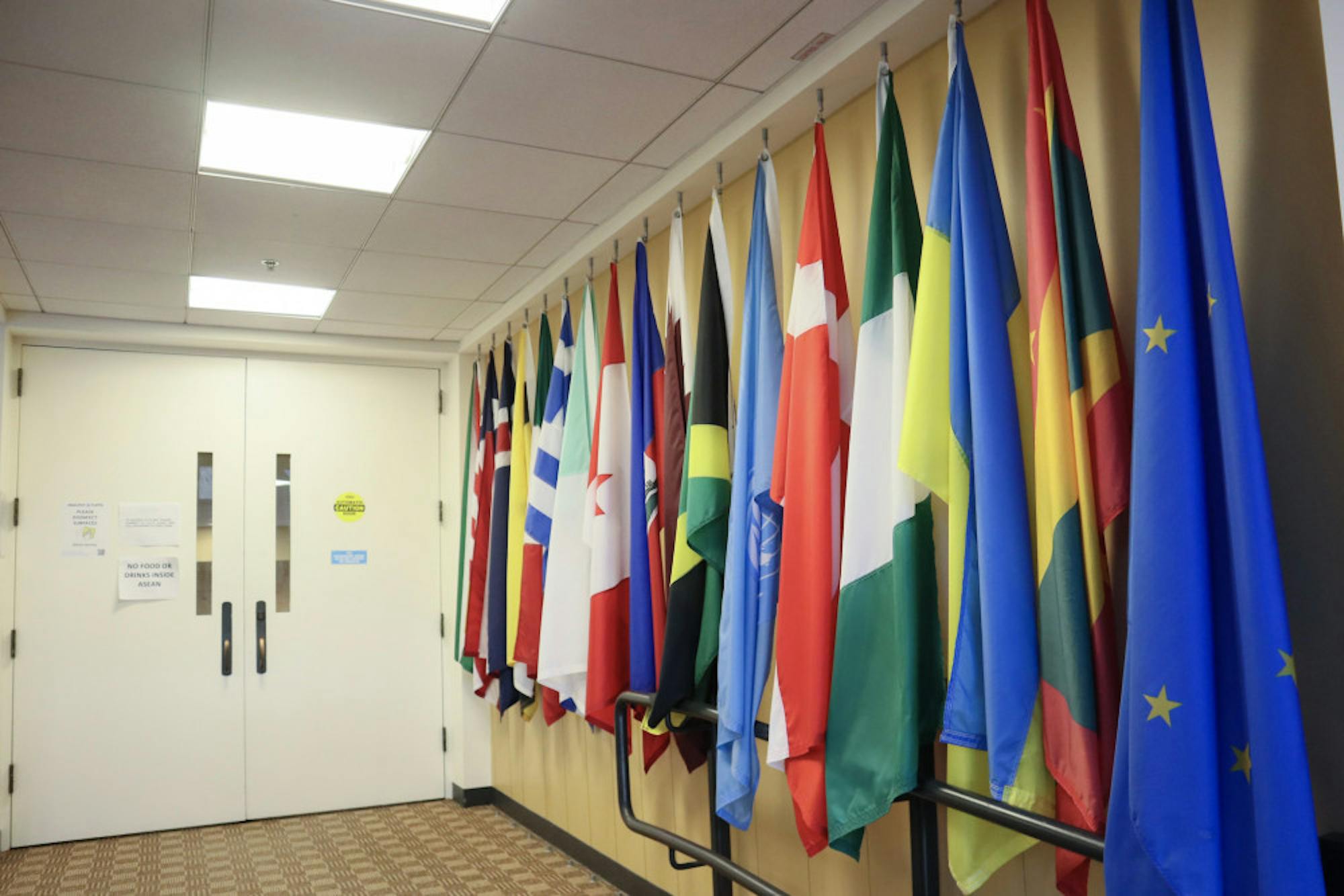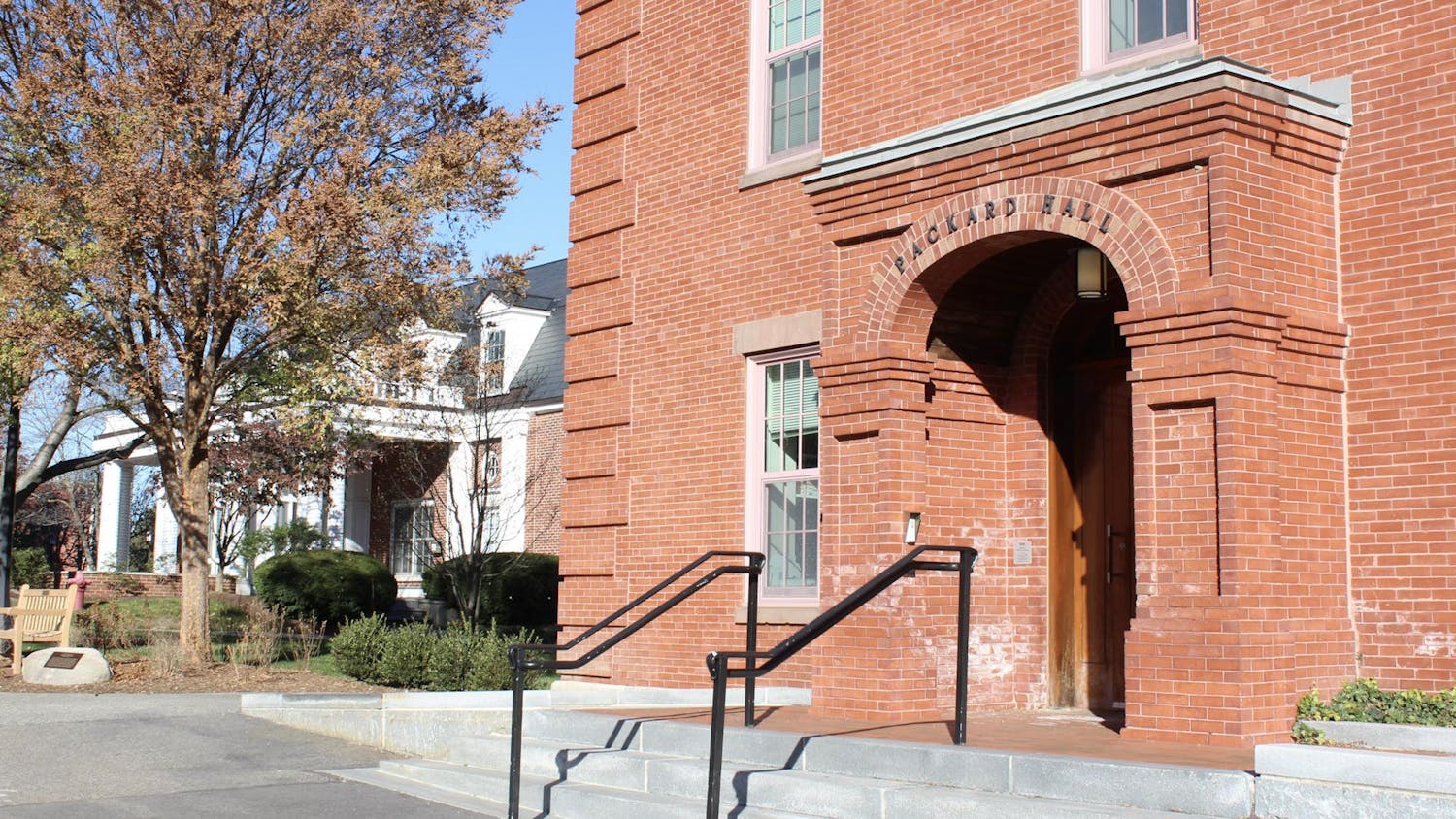The Fletcher School hosted a conversation about diversity, equity and inclusion in diplomacy with Brian A. Nichols (LA '87) on Feb. 24. Nichols, U.S. assistant secretary of state for western hemisphere affairs, previously served as a U.S. ambassador to the Republic of Zimbabwe.
Nichols said he initially anticipated going into finance. However, the international prestige of Tufts and Fletcher sent him on the path of foreign affairs by convincing him to try an international relations class.
"I started taking more [IR] classes and ended up being a political science major," Nichols said.
While studying at Tufts, a diplomat-in-residence inspired Nichols to join the Foreign Service.
"I took the Foreign Service exam … I graduated in May of '87, and my first day on duty was 33 years ago on Tuesday,” Nichols said.
Nichols opened the discussion by describing the inextricable links between foreign and domestic events.
“Foreign policy of any country necessarily reflects the political situation of that country," Nichols said. "When I was an undergraduate, the wars in Central America were a very hot topic on campus. Apartheid in South Africa was another very salient topic … There was a great dynamic as to what America's role in the world should be."
He also emphasized the importance of minority representation in government.
"America is producing great African American diplomats," Nichols said. "When we take advantage of our full diversity, that makes America stronger.”
Nichols discussed the diverse backgrounds of those who enter the Foreign Service.
"We've got people who have all sorts of backgrounds. One of my classmates when I joined the Foreign Service … she'd been a taxi driver, a nun, a groundskeeper at a summer camp," Nichols said. "I married a fellow Foreign Service officer, and she came in without a Foreign Service background. She was a physiology major in college and just heard about the Foreign Service when she was working at 4-H in Washington … [she] took the exam and passed."
While the field of diplomacy has become more diverse, Nichols pointed out that racism and discrimination are still prevalent.
"America is a diverse country, and when [people] see an African American or an Asian diplomat or an Arab American diplomat, that's something they might not expect,"Nichols said. "When I was a vice consul in Lima, Peru … They weren't entirely happy with me. They would say ‘You are not the vice consul. I want to talk to the vice consul.'"
To improve the diversity of diplomatic fields, Nichols suggested expanding the scope of searches for candidates.
“We need to make sure we are hiring a diverse cadre of diplomats," Nichols said. "That means recruiting not only [from] prestigious northeastern universities like Tufts … but also from schools that have not historically fed people into the Foreign Service."
Nichols also discussed the unavoidable risks that come with working in the Foreign Service.
"I dealt with a serious terrorism threat in Indonesia,"Nichols said. "My family, my wife and children were ordered to leave the country, along with all the other families, due to the terror threat that we faced."
Drawing upon his experience, Nichols shed light on current issues, including the ongoing conflict between Russia and Ukraine. Nichols said that Vladimir Putin was acting over the objections of the people of Ukraine, who have had elections.
"We have the opportunity to work as an international community to send a collective message to President Putin and the Russian Federation that its conduct is unacceptable," Nichols said.
Nichols emphasized the importance of hard work and passion for students interested in Foreign Service.
"If you join the Foreign Service, and you enjoy it and you love it and you work hard, you will advance," Nichols said.






